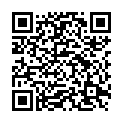|
|
|
| Module code: BAME18-19 |
|
6S (6 hours per week) |
|
7 |
| Semester: 5 |
| Mandatory course: no |
Language of instruction:
German |
Assessment:
Exam achievement: Term paper
[updated 01.10.2020]
|
BAME18-19 Health care management, Bachelor, ASPO 01.10.2018
, semester 5, optional course
|
90 class hours (= 67.5 clock hours) over a 15-week period.
The total student study time is 210 hours (equivalent to 7 ECTS credits).
There are therefore 142.5 hours available for class preparation and follow-up work and exam preparation.
|
Recommended prerequisites (modules):
None.
|
Recommended as prerequisite for:
|
Module coordinator:
Prof. PhD Petra Riemer-Hommel |
Lecturer:
Prof. PhD Petra Riemer-Hommel
Mirjam Philippi, M.Sc.
Prof. Dr. Johannes Gräske
[updated 27.07.2017]
|
Learning outcomes:
Quality in the Health Sector
After successfully completing this module, students will be familiar with the development and methods of nursing quality development in the different sectors of the health care system. They will be familiar with different certification procedures in health care institutions and can analyze them with regard to objectives, implementation, possibilities and limits. They will be familiar with the concept of quality in standards, regulations and procedures and can justify it in terms of the autonomy and protection of their clientele. Students will be able to assign audits, supervision and control institutionally and explain their interdependencies. They will be familiar with techniques for implementation with the aim of building an organization based on quality standards and results. Furthermore, students will be familiar with the use of selected quality management tools.
[updated 01.10.2020]
|
Module content:
Quality in the Health Sector
_ Definition of terms (e.g. What is quality? Quality development, internal and external QE, central and decentralized QE, standards, quality categories)
_ History of quality development in nursing
_ Overview of relevant quality management systems and legal framework conditions in the German health care system
_ Certification and accreditation (e.g. DIN EN ISO/IEC, KTQ, EFQM)
_ Analysis, goals, benefits and limits of quality management
_ Selected quality management tools (QM tools)
QM tools:
Different instruments and methods will be presented and practiced:
_ Quality check list
_ Histogram
_ Quality control chart
_ Correlation diagram
_ Brainstorming
_ Ishikawa diagram
_ FMEA (failure mode and effects analysis)
_ Fault tree analysis
_ Six Sigma
_ Quality indicators
[updated 01.10.2020]
|
Teaching methods/Media:
Print and electronic media, slides
[updated 01.10.2020]
|
Recommended or required reading:
Quality in the Health Sector
_ Schiemann D, Moers M, Bücher A (Hg) (2014). Qualitätsentwicklung in der Pflege: Konzepte, Methoden und Instrumente. Stuttgart: Kohlhammer
QM Tools:
_ Kamiske, GF, Brauer, J-P (2006). Qualitätsmanagement von A-Z, Hanser Verlag
In particular, current case studies and journal articles will be used.
Additional literature will be announced in the course.
[updated 01.10.2020]
|


